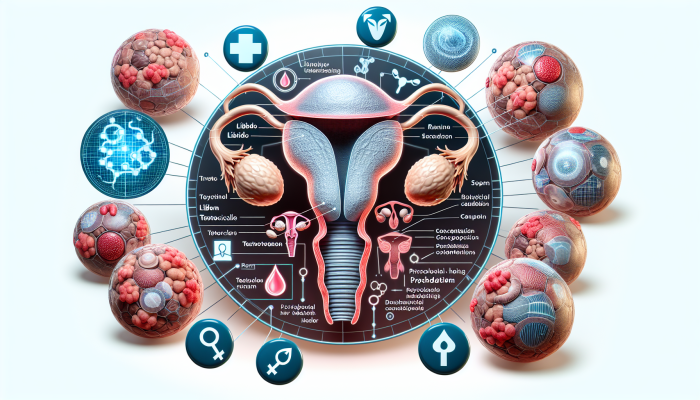In-Depth Exploration of Testosterone Testing Standards for Enhanced Health Outcomes
testosterone is a crucial component in maintaining hormonal health for both men and women. This vital steroid hormone is instrumental in promoting muscle growth, elevating sexual drive, maintaining bone health, and supporting emotional equilibrium. Striving for balanced testosterone levels can significantly improve one’s overall quality of life by enhancing aspects such as energy levels, emotional stability, and cognitive abilities. Therefore, understanding the testosterone testing standards is essential for identifying hormonal imbalances and improving overall health and well-being.
Exploring the Critical Importance of Testosterone in Comprehensive Health

The majority of testosterone is synthesized in the testicles for men, while women produce smaller quantities through their ovaries. Although often linked to typical male characteristics such as increased muscle mass and body hair, this hormone is also vital for various physiological functions in women. Variations in testosterone levels can significantly impact libido, sperm production, and cognitive clarity. Insufficient testosterone levels can lead to a range of health complications, including depression, chronic fatigue, and diminished sexual performance.
Moreover, testosterone’s effects extend to mental health as well. Studies have shown that maintaining optimal testosterone levels contributes to improved mood and better resilience against stress. This underscores the need for regular monitoring and understanding of your testosterone levels, particularly if you notice changes in your emotional or psychological state.
Decoding the Formulation of Testosterone Testing Standards: Key Insights
The testosterone testing standards are derived from comprehensive clinical trials involving healthy individuals. These studies consider numerous factors, such as age, gender, and the timing of the tests. Notably, testosterone levels typically fluctuate throughout the day, generally peaking in the morning hours. As a result, laboratories adapt their standards to reflect these natural variations.
It is important to note that reference ranges can differ greatly between laboratories, primarily due to variations in testing methodologies and the demographics of the populations involved in the studies. Thus, what is deemed “normal” in one laboratory may not correspond to another’s criteria. This variability emphasizes the necessity of consulting with a healthcare professional for an accurate interpretation of your results, taking into account your unique health background and circumstances.
Key Factors Affecting Variability in Testosterone Testing Standards Among Laboratories
The disparities in testosterone testing standards across different laboratories stem from several factors. Each laboratory employs its own testing procedures, which may vary in terms of precision and sensitivity. For instance, some labs may utilize immunoassays, while others might adopt advanced techniques like liquid chromatography. Such differences can lead to inconsistent test results.
Additionally, the reference populations used to establish these norms can significantly influence the resultant values. If a laboratory primarily tests individuals from a specific demographic or age group, its established norms may not accurately reflect the general population. Therefore, it is crucial to obtain results from a reputable laboratory and discuss them with a healthcare professional to fully understand your results in the context of your medical history.
Decoding Your Testosterone Testing Results: Essential Insights

Interpreting the results of a testosterone test can initially appear daunting; however, it becomes more manageable once you understand the established standards and their implications. Typically, testosterone test results are expressed in nanograms per deciliter (ng/dL), with variations influenced by factors such as age and gender.
Step-by-Step Guide to Analyzing Your Testosterone Test Results
The first step in evaluating your testosterone test results is to compare them against the testosterone testing standards. Generally, testosterone levels for men range from 300 to 1,000 ng/dL, while women typically show levels between 15 to 70 ng/dL. Should your results fall outside these established parameters, further evaluation may be warranted to uncover the underlying causes.
It’s vital to assess test results within the larger context of your overall health. What may seem like low testosterone levels for one individual could be entirely normal for another, depending on personal factors such as age and overall health status. Consulting with a healthcare professional will facilitate a comprehensive understanding of your results, helping you determine if additional tests or interventions are necessary.
Understanding the Impact of Low Testosterone Levels
Low testosterone levels, clinically referred to as hypogonadism, can lead to various significant health issues. Common symptoms include a notable decline in libido, persistent fatigue, decreased muscle mass, and emotional fluctuations. If you experience any of these symptoms, it may be prudent to undergo a testosterone test to evaluate whether your levels are below the normal range.
The causes of low testosterone can be diverse, encompassing medical conditions and lifestyle choices. Health issues such as diabetes, obesity, or disorders affecting the pituitary gland can hinder testosterone production. Moreover, environmental factors like exposure to harmful chemicals or endocrine disruptors may also contribute to this condition. A thorough medical evaluation is essential for accurately identifying the cause and formulating effective treatment strategies.
Potential Health Risks Associated with Elevated Testosterone Levels

On the other hand, excessively high testosterone levels can also pose significant health risks. Abnormally elevated testosterone levels may be linked to medical conditions such as testicular tumors or the misuse of anabolic steroids. Symptoms associated with high testosterone can include acne flare-ups, hypertension, and mood alterations, including heightened aggression.
It is critical to avoid jumping to conclusions based solely on elevated test results. Engaging in dialogue with a healthcare professional is necessary to thoroughly evaluate the findings and consider additional testing to uncover the underlying causes. It is equally important to discuss the potential health risks associated with high testosterone levels, which may include cardiovascular complications and other adverse effects.
Key Factors Influencing Testosterone Levels: Insights for Improved Health
Testosterone levels are dynamic and can be influenced by a multitude of factors. Gaining an understanding of these influences empowers you to make informed decisions about your hormonal health.
How Age Influences Testosterone Levels
Age is a significant factor affecting testosterone testing standards. It is widely acknowledged that testosterone levels in men begin to gradually decline around the age of 30. This slow but steady decrease can have profound implications for both physical and mental health over time.
Women, despite generally having lower testosterone levels, also experience a decline as they age, particularly following menopause. This decrease can lead to symptoms such as fatigue, diminished libido, and emotional instability. Therefore, it is critical for individuals of all genders to monitor their testosterone levels as they age and seek medical advice if any signs of hypogonadism emerge.
The Impact of Lifestyle Choices on Testosterone Levels
Your lifestyle choices significantly influence the maintenance of optimal testosterone levels. Engaging in healthy practices, such as adhering to a balanced diet, engaging in regular physical activity, and ensuring sufficient sleep, can greatly support healthy hormonal levels. Research indicates that exercise, particularly resistance training, can enhance testosterone production.
Conversely, risk factors such as obesity, a sedentary lifestyle, and chronic stress can disrupt hormonal balance. Elevated stress levels, in particular, can lead to increased cortisol production, a hormone that negatively impacts testosterone production. By incorporating stress-reduction techniques such as meditation or yoga and adopting an active lifestyle, you can significantly enhance your hormonal health.
The Influence of Medications and Supplements on Testosterone Levels
Certain medications can have a substantial effect on testosterone levels. Corticosteroids, opioids, and some antidepressants may reduce testosterone production. If you are currently on medication and have concerns regarding your testosterone levels, it is advisable to consult your healthcare provider.
Conversely, specific supplements that claim to elevate testosterone levels, such as zinc and vitamin D, may offer benefits, particularly for individuals with deficiencies. However, it is crucial to seek guidance from a healthcare professional before starting any supplementation. A balanced approach that emphasizes a nutritious diet and an active lifestyle is often the most effective strategy for maintaining optimal hormonal levels.
Identifying Symptoms and Diagnostic Strategies for Abnormal Testosterone Levels
Recognizing the symptoms associated with abnormal testosterone levels is vital for early identification and timely interventions. This process generally involves physical examinations and laboratory tests.
Common Symptoms Indicative of Low Testosterone Levels
Symptoms related to low testosterone levels can vary widely among individuals, but certain common signs may indicate a hormonal imbalance. Persistent fatigue is frequently noted as one of the most prominent symptoms. If you experience a noticeable decline in your energy levels that seems disproportionate to other factors, it might serve as a warning signal.
A decline in libido is another significant indicator. Men may find it challenging to achieve or sustain an erection, while women might experience diminished sexual interest. Additionally, loss of muscle mass, weight gain, and emotional fluctuations, including anxiety or depression, can also be associated with low testosterone levels.
When to Seek Professional Help for Testosterone Testing
It is advisable to consult with a healthcare professional if you are experiencing persistent symptoms or harbor specific concerns regarding your testosterone levels. Early evaluation can be instrumental in identifying potential underlying health conditions and developing an appropriate action plan.
If you are a man over 40 or a woman experiencing menopause, it may be particularly prudent to discuss testosterone testing with your healthcare provider, even if you do not exhibit symptoms. Regular screenings can assist in monitoring your testosterone levels and making informed health decisions.
The Diagnostic Approach for Evaluating Testosterone Levels
The diagnostic process for assessing testosterone levels typically begins with a thorough medical consultation, during which your symptoms and medical history are carefully reviewed. If your doctor suspects a hormonal imbalance, they may recommend a blood test to measure your testosterone levels.
Testing is generally conducted in the morning when testosterone levels are at their peak. Should abnormal results be identified, additional testing may be necessary to determine the underlying cause. This could involve evaluations of pituitary function or further hormonal assessments. Accurate diagnosis is essential for developing an effective treatment plan.
Exploring Treatment Options for Managing Abnormal Testosterone Levels
Upon discovering abnormal testosterone levels, a variety of treatment options may be available. The choice of the appropriate treatment often depends on the underlying cause and individual preferences.
Effective Strategies for Managing Low Testosterone Levels
Addressing low testosterone levels may involve testosterone replacement therapy (TRT), which is designed to restore normal hormonal levels. TRT can be administered through various methods, including injections, gels, or transdermal patches. This treatment can effectively alleviate symptoms associated with hypogonadism, such as fatigue, reduced libido, and diminished muscle mass.
However, it is crucial to discuss the potential risks and benefits of TRT with your healthcare provider. While many patients experience relief from symptoms, there are associated risks, including cardiovascular complications and possible side effects. Regular monitoring of hormonal levels is often necessary to ensure the treatment’s safety and effectiveness.
Natural Approaches to Boost Testosterone Levels
For those who prefer to avoid hormonal treatments, there are several natural methods that can help increase testosterone levels. Maintaining a healthy lifestyle characterized by a nutrient-rich balanced diet is essential. Foods high in zinc, vitamin D, and omega-3 fatty acids can effectively promote testosterone production.
Incorporating regular physical activity, especially resistance training, is another excellent strategy for stimulating testosterone. Moreover, engaging in stress management techniques such as meditation, yoga, or enjoyable recreational activities can help lower cortisol levels, thereby supporting optimal hormonal balance.
Evaluating the Benefits and Risks of Testosterone Replacement Therapy
Testosterone replacement therapy can offer numerous advantages, including improved libido, enhanced mood, and increased muscle mass. Nonetheless, it also carries potential risks, such as an increased likelihood of cardiovascular disease, sleep apnea, and prostate complications.
Thus, it is essential to carefully weigh the benefits and risks of TRT. A comprehensive discussion with a healthcare professional is crucial in determining whether this treatment aligns with your health goals. Regular follow-up appointments are also necessary to monitor treatment efficacy and make adjustments as needed.
The Significant Impact of Testosterone Levels on Overall Health
Testosterone levels have a profound influence on various facets of health, including mental well-being, bone density, and cardiovascular function. Understanding these relationships can aid in better management of your overall health.
The Influence of Testosterone Levels on Mental Well-Being
Research suggests that testosterone levels significantly affect mental health. Low testosterone levels are often linked to mood disorders such as depression and anxiety. Individuals maintaining adequate testosterone levels are likely to exhibit improved emotional resilience and a higher quality of life.
Importantly, addressing hypogonadism can lead to enhanced mental health outcomes. Many patients report mood improvements and reduced depressive symptoms following the restoration of normal hormonal levels. This highlights the necessity of monitoring testosterone levels, particularly concerning mental health challenges.
Testosterone’s Role in Supporting Bone Health
Testosterone plays an essential role in maintaining bone health by enhancing bone density and reducing the risk of osteoporosis. Adequate testosterone levels are crucial for sustaining bone mass and lowering the likelihood of fractures, particularly in older adults, as declining testosterone levels can lead to increased bone fragility.
Studies indicate that testosterone replacement therapy may positively influence bone density in both men and women experiencing hypogonadism. Therefore, monitoring testosterone levels and considering appropriate treatment options is vital for preserving optimal bone health.
The Connection Between Testosterone Levels and Cardiovascular Health
The relationship between testosterone levels and cardiovascular health is intricate. Balanced testosterone levels can promote heart health by influencing lipid metabolism and enhancing vascular function. However, excessively high testosterone levels, often seen with steroid use, may increase the risk of cardiovascular diseases.
Achieving a healthy hormonal balance is crucial. Regular monitoring of your testosterone levels and conversations with a healthcare professional will assist you in navigating these health issues and maintaining optimal cardiovascular well-being.
Proactive Monitoring and Testing of Testosterone Levels: Essential Recommendations
Taking proactive measures to prepare for a testosterone test and consistently monitor your testosterone levels is crucial for maintaining optimal hormonal health. Here are several recommendations to guide you through this process.
Effective Preparation Guidelines for a Testosterone Test
Proper preparation for a testosterone test is vital to ensure accurate results. It is recommended to avoid intense exercise, alcohol consumption, and certain medications, including corticosteroids, at least 24 hours before the test. Typically, tests are conducted in the morning when testosterone levels are naturally elevated, yielding more reliable outcomes.
Additionally, discussing any questions or concerns with your physician prior to the test is essential. Adequate preparation can greatly affect the accuracy of your results and enhance your understanding of your hormonal health.
Determining the Optimal Frequency for Testosterone Testing
The frequency of testosterone testing is often guided by symptoms and medical advice. For men over 40, annual testing is generally recommended, especially if there are concerns regarding low testosterone levels. For individuals undergoing treatment or exhibiting symptoms, more frequent testing may be necessary to monitor testosterone levels and adjust treatment plans as appropriate.
Maintaining open communication with your healthcare provider is vital for establishing a testing schedule that best aligns with your individual health needs.
The Importance of Ongoing Monitoring of Testosterone Levels
Consistent monitoring of testosterone levels allows for the assessment of treatment efficacy and identification of changes in your hormonal health. This is particularly crucial for those receiving testosterone replacement therapy, as treatment adjustments may be required over time.
By diligently tracking your testosterone levels, you can collaborate closely with your healthcare provider to optimize treatment and ensure a healthy hormonal balance. This proactive approach can significantly enhance your overall health and help prevent potential health complications in the future.
Frequently Asked Questions About Testosterone Testing Standards
Do testosterone levels fluctuate throughout the day?
Yes, testosterone levels naturally fluctuate during the day, typically reaching their peak in the morning hours.
What symptoms indicate low testosterone levels?
Common symptoms include persistent fatigue, decreased libido, mood changes, and loss of muscle mass.
How do testosterone levels impact mental health?
Low testosterone levels can contribute to mental health challenges, including depression and anxiety.
When should I consult a healthcare provider regarding testosterone testing?
Consult a physician if you experience ongoing symptoms or have concerns regarding your testosterone levels.
What treatment options are available for low testosterone levels?
Available options include testosterone replacement therapy, lifestyle changes, and natural remedies.
Is testosterone replacement therapy a safe option?
While beneficial for many, testosterone replacement therapy carries potential risks, including cardiovascular complications.
Can supplements aid in increasing testosterone levels?
Some supplements may be helpful, but it is crucial to consult a healthcare professional before using them.
What is the normal testosterone range for men?
Normal testosterone levels in men typically range from 300 to 1,000 ng/dL.
Should women consider testosterone testing?
Yes, women can also benefit from testosterone testing, especially if they show signs of hormonal imbalance.
What is the recommended frequency for testosterone testing?
The frequency of testing depends on symptoms and medical history; however, annual testing may be appropriate for men over 40.
Connect with us on Facebook!
This article was originally published on https://bloodtest.co.uk
The Article: Testosterone Testing Standards: Your Ultimate Guide appeared first on: https://ezbloodtest.com
The Article Testosterone Testing Standards: Essential Guide for You Was Found On https://limitsofstrategy.com



